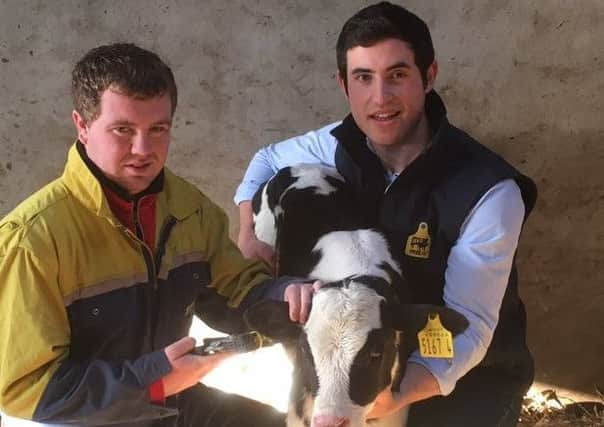A review of the compulsory BVD testing scheme one year on


One year on Doris Leeman called with Roger Allen, Countryside Sales Manager, to review the campaign and discuss its key successes.
Q. How did you prepare for the introduction of compulsory BVD testing?
Advertisement
Advertisement
A. Countryside developed an extensive campaign to inform and prepare farmers on how to comply with the impending introduction of the new tag and test arrangements. We developed a network consisting of veterinary practices, agricultural merchants and A.I technicians which stretched across NI. Their focus was to educate farmers and prepare them for the change in legislation through practical tag and test demonstrations. This was supported by our participation at various agricultural shows, livestock markets and UFU meetings. Many farmers had their queries dealt with at these events.
Q. As the deadline of 1st March for compulsory testing loomed and calves were being born on farm, what was the farmer reaction?
A - Some farmers were anxious about the procedure and phoned or called at the office to get detailed information. We ensured that there was always someone available to deal with their queries. Our staff have a strong agricultural background and so were in a position to explain the scheme clearly. We also had staff available to carry out on-farm demonstrations for the new tagging system and this practical assistance was warmly welcomed by farmers.
Q. Apart from the information and back up service to farmers what other preparations did Countryside Services make for the new testing scheme?
Advertisement
Advertisement
A. We were confident that we were supplying the best quality tag on the market; that we had a laboratory that could deal efficiently with a large number of samples and furthermore, that we understood the urgency for farmers to obtain their BVD test results.
Q. Did the rush of samples, when the scheme started, provide you with difficulties?
A. No difficulties as we were well prepared. We carefully planned our approach in advance to enable us to cater for the spike in demand for tags which involved the introduction of additional shift patterns. Our production department operated 24/7 to maximise output and minimise disruption to our customers.
Q. When farmers order tags, how long is it before they receive them? I have heard farmers quoting three to four weeks.
Advertisement
Advertisement
A. We have a next day delivery service for replacement tags. For new tags it is three to four days maximum.
Q. Does this special service cost extra money?
A. No, currently we are selling cheaper than competitors, especially for replacement tags, and offer a farmer focused professional and efficient service at no extra cost.
Q. Why did you chose the Caisley tag?
A. We wanted to concentrate on one superior brand. It is robust, easily applied and durable. The Caisley brand has an extremely high retention rate minimising the need for farmers to incur the cost of multiple replacements.
Q. Some farmers complained that it was three to four weeks before they received sample results.
Advertisement
Advertisement
A. We conducted extensive research before deciding which laboratories we would work with. The aim was to issue results between five and seven days but normally results were issued in a shorter timeframe.
Q. According to the Animal Health and Welfare NI web site there has been 2262 or 0.62% empty samples since the scheme started on 1st March. How did you deal with any of these that were your customers?
A. Our staff visited or advised farmers whether they were existing customers or not, and when necessary, carried out demonstrations to ensure that the farmer understood how to apply the tags correctly. The number of empty samples has reduced as farmers’ understanding of the tag application technique has improved.
Q. Are there any changes ahead?
A. Yes there has been a significant development – Minister Mcllveen has announced a support package that includes assistance for the humane destruction of dairy and beef calves that are persistently infected with BVD. This is welcome news for farmers.
Advertisement
Advertisement
AWHNI have also announced that from the 1st January 2017 negative declaration letters will no longer be issued. Herdowners will continue to receive letters relating to positive results, inconclusive results, no sample received, and identification of a Dam of a Persistently Infected animal (DAMPI) or Offspring of a Persistently Infected animal (OFFPI) owners. Animal Health and Welfare NI (AHWNI) statistics confirm over 373,182 animals have been tested and of these over 98% have tested negative from the compulsory date of 1st March 2016.
We will be keeping our customers updated as more details become available. Countryside Services staff can be contacted on 02887789770.